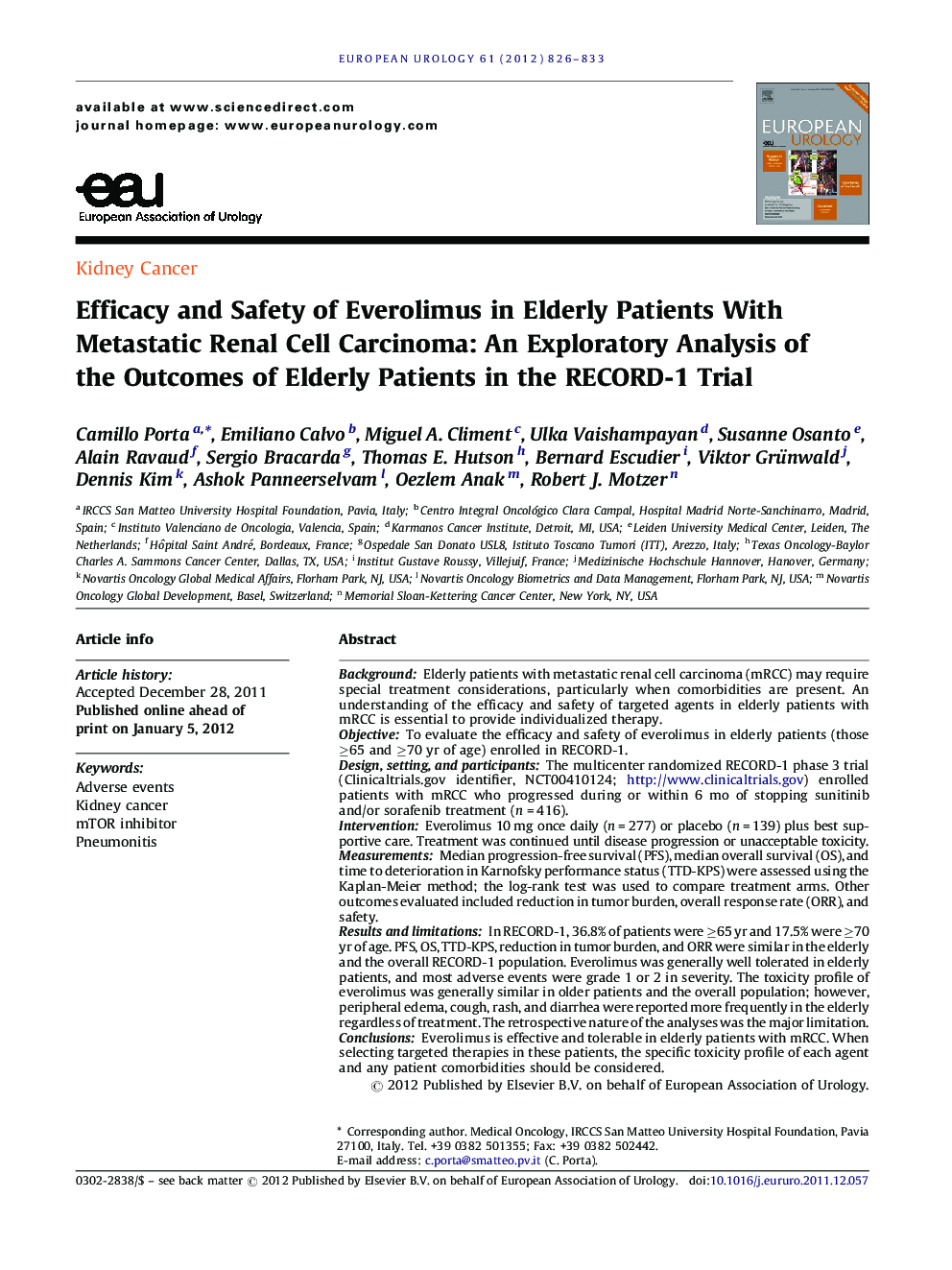| Article ID | Journal | Published Year | Pages | File Type |
|---|---|---|---|---|
| 3926877 | European Urology | 2012 | 8 Pages |
BackgroundElderly patients with metastatic renal cell carcinoma (mRCC) may require special treatment considerations, particularly when comorbidities are present. An understanding of the efficacy and safety of targeted agents in elderly patients with mRCC is essential to provide individualized therapy.ObjectiveTo evaluate the efficacy and safety of everolimus in elderly patients (those ≥65 and ≥70 yr of age) enrolled in RECORD-1.Design, setting, and participantsThe multicenter randomized RECORD-1 phase 3 trial (Clinicaltrials.gov identifier, NCT00410124; http://www.clinicaltrials.gov) enrolled patients with mRCC who progressed during or within 6 mo of stopping sunitinib and/or sorafenib treatment (n = 416).InterventionEverolimus 10 mg once daily (n = 277) or placebo (n = 139) plus best supportive care. Treatment was continued until disease progression or unacceptable toxicity.MeasurementsMedian progression-free survival (PFS), median overall survival (OS), and time to deterioration in Karnofsky performance status (TTD-KPS) were assessed using the Kaplan-Meier method; the log-rank test was used to compare treatment arms. Other outcomes evaluated included reduction in tumor burden, overall response rate (ORR), and safety.Results and limitationsIn RECORD-1, 36.8% of patients were ≥65 yr and 17.5% were ≥70 yr of age. PFS, OS, TTD-KPS, reduction in tumor burden, and ORR were similar in the elderly and the overall RECORD-1 population. Everolimus was generally well tolerated in elderly patients, and most adverse events were grade 1 or 2 in severity. The toxicity profile of everolimus was generally similar in older patients and the overall population; however, peripheral edema, cough, rash, and diarrhea were reported more frequently in the elderly regardless of treatment. The retrospective nature of the analyses was the major limitation.ConclusionsEverolimus is effective and tolerable in elderly patients with mRCC. When selecting targeted therapies in these patients, the specific toxicity profile of each agent and any patient comorbidities should be considered.
